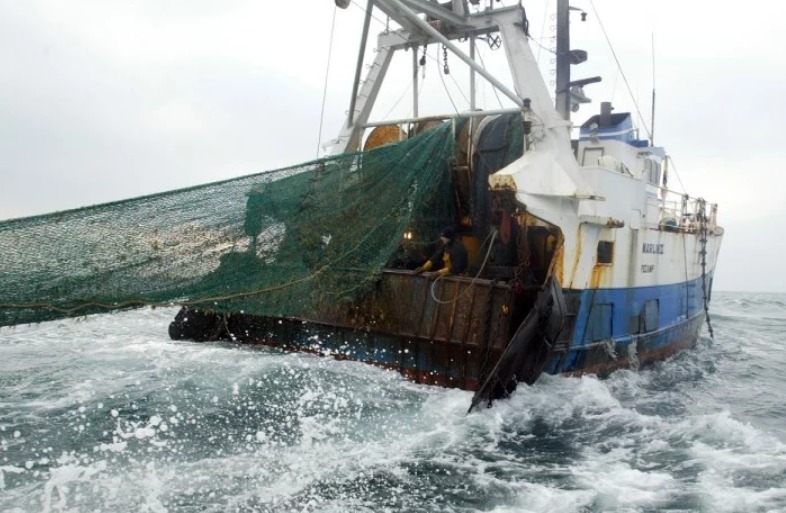Greece has announced its intention to ban bottom trawling in its marine protected areas by 2030. This practice is considered destructive and is still permitted in France.
Is there hope for the Mediterranean? During the « Our Ocean » conference held from April 15 to 17 in Athens, Greece announced plans to phase out bottom trawling in its national parks within two years. The goal is to eliminate this destructive fishing practice entirely from its protected marine areas, which represent 30% of the country’s maritime territory, by 2030. This decision was hailed as « historic » by Prime Minister Kyriakos Mitsotakis.
Bottom trawling, which involves dragging massive nets behind boats, is one of the most energy-intensive and harmful fishing techniques for biodiversity. It is non-selective, leading to the capture of numerous juvenile fish and non-targeted species like dolphins. By scraping the ocean floor, bottom trawls, likened to « marine bulldozers, » destroy coral reefs and sponges. A study published in January also revealed that they release substantial amounts of CO2 into the atmosphere.
According to Joachim Claudet, a research director at the National Center for Scientific Research (CNRS), this fishing technique is « absolutely incompatible with biodiversity conservation and, therefore, the presence of a protected marine area. » Greece’s decision is seen as very positive for marine ecosystems by this marine protected areas specialist. However, he warns against premature celebration, noting that announcements made at such conferences are not always implemented in reality.
Meanwhile, France remains hesitant to act decisively. In March 2023, Secretary of State for the Sea Hervé Berville firmly opposed banning bottom trawling in French marine protected areas. Recent reports indicate that France is actively obstructing the UK’s efforts to protect its waters by banning bottom trawling. This has sparked criticism, with advocates urging France to follow Greece’s example and take credible diplomatic action on ocean conservation.
The upcoming United Nations Ocean Conference in Nice provides an opportunity for France to demonstrate leadership in marine conservation. The call is for France to align its policies with scientific recommendations and international efforts to protect marine biodiversity.


